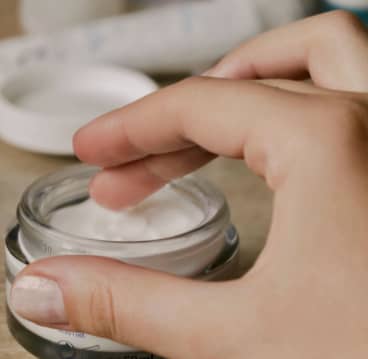 HydraFacial®
HydraFacial®5 Age-Defying Skincare Ingredients For Sensitive Skin
Because easily triggered skin deserves to look its best, too.
Oh, the delicate dance of finding age-defying skincare products that work for sensitive skin. It can feel like a bit of a puzzle, since what we really mean by ‘anti-aging’ is resurfacing, and many of the ingredients that get you there can be irritating for dry and/or easy-to-disrupt skin types. But there are ways to hold off the signs of Father Time marching across your face without suffering through discomfort along the way. Whether it’s adopting smart strategies for using potentially irritating ingredients and/or reaching for gentler alternatives, like azelaic acid and bakuchiol (to just name two), skin-smoothing solutions abound. Here’s what to know.
How to Make Retinol & Vitamin C Work for Sensitive Skin
The two biggest topical anti-agers out there, retinol and vitamin C, have a reputation for being mean to sensitive skin — and that’s not unwarranted. Retinol, for one, can leave all skin types red, dry, blotchy, and wondering how anyone ever ‘pushes past’ the adjustment phase known as retinization. However, before we go into the alternatives, it’s worth noting that many people with sensitive skin can use these ingredients with some adjustments. It’s all about easing into it.
Retinol
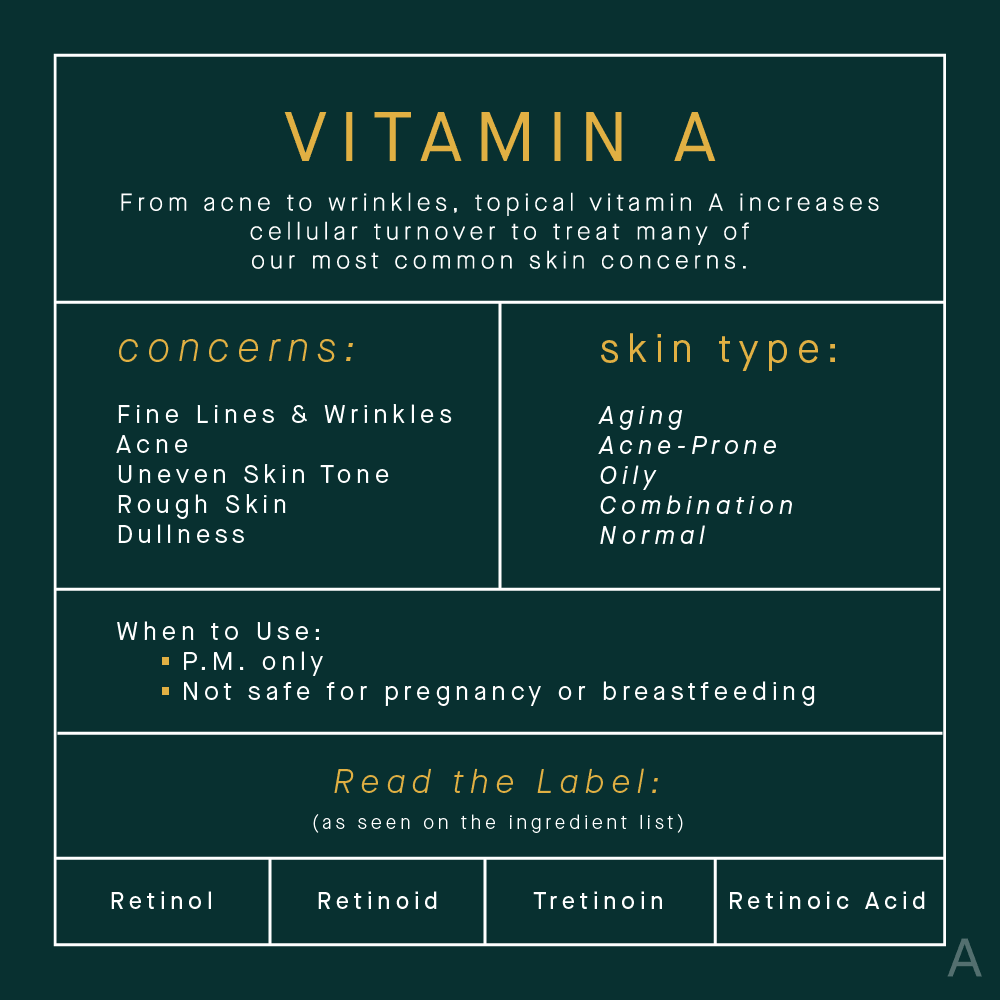
In the case of retinol or prescription retinoids, Paul Jarrod Frank, MD, a New York City-based board certified dermatologist and author of The Pro-Aging Playbook, offers this strategy: “Start slowly and listen to your skin. If you’re sensitive, try using a retinol with a low concentration and begin once per week at night. If tolerable, increase from there.” When in doubt, “you can also use retinols that contain calming ingredients like oat extract,” he adds. It is also important to consider the way you are applying the product. “It is crucial for those with sensitive skin to moisturize before and after using a retinol to buffer,” Dr. Frank says.
His pick? Alastin Renewal Retinol, which has that oat extract he mentioned to calm the skin. Oh, and it also comes in a lotion base for added hydration.
Vitamin C
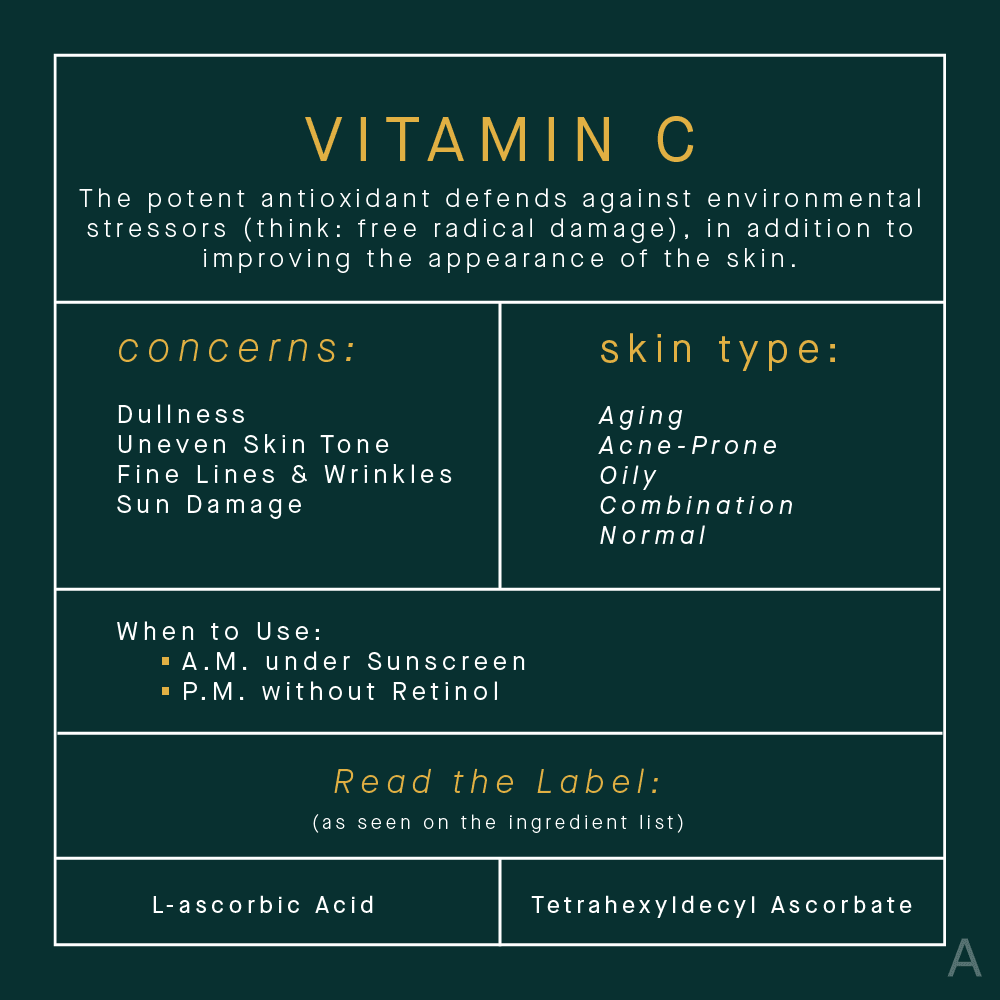
At this point, you’ve probably heard us wax poetic about vitamin C for its ability to boost collagen and reverse free radical damage. While it can be irritating to sensitive skin, it doesn’t have to be. “It depends on the formulation's pH and how it interacts with the skin's pH,” Sejal Shah, MD, a NYC-based board certified dermatologist. A good rule of thumb: look for a product with a vitamin C concentration under 10 percent (if the bottle tells you the percentage). And, just like with retinol, Dr. Shah says to “use it a few times a week” to start, before “gradually increasing to daily use.”
Try: Cellex-C Sensitive Skin Serum — specifically formulated to deliver C to tricky skin.
The Best Gentle Anti-Aging Ingredients for Sensitive Skin
Despite their superhero status, retinol and vitamin C are not the only choices for improving skin tone and texture. If they’re not working for you, you want anti-aging benefits on our off-days, or you just want to skip the potential for irritation all together, read on for other active ingredient options that act as gentler line erasers.
1. Bakuchiol
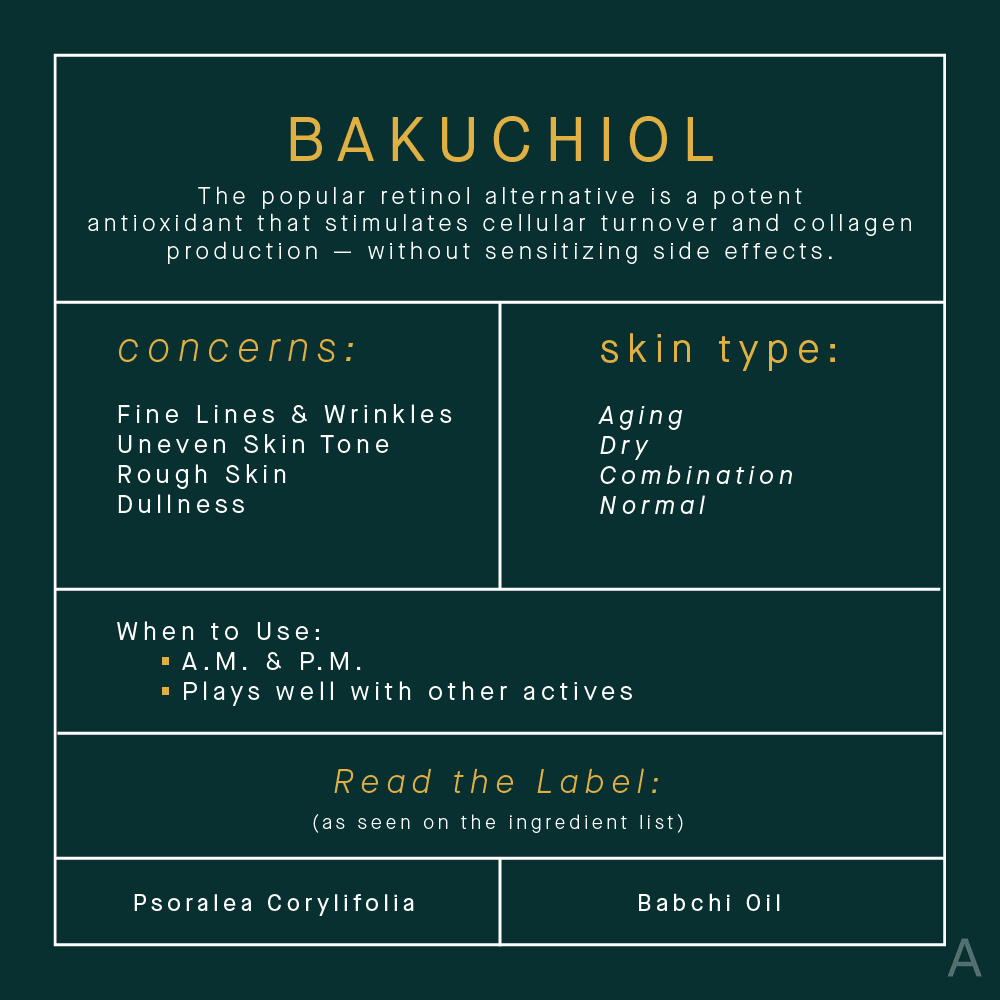
Touted as the natural, gentler alternative to retinol, bakuchiol is a derivative of the seeds and leaves of the Psoralea corylifolia (babchi) plant that stimulates collagen and cell turnover without the drying effects of its vitamin A counterparts. Some of the reasons Dr. Frank loves it is because it’s pregnancy-safe (unlike retinoids), less irritating, and can be used A.M. and P.M. (a no-no for retinol).
Product Pick:
- Isdinceutics Melatonik Overnight Recovery Serum: This bakuchiol-based serum combines the ingredient with melatonin to up its sleep-time repair powers to correct any damage you’ve accumulated during the day.
2. Hyaluronic Acid (HA)
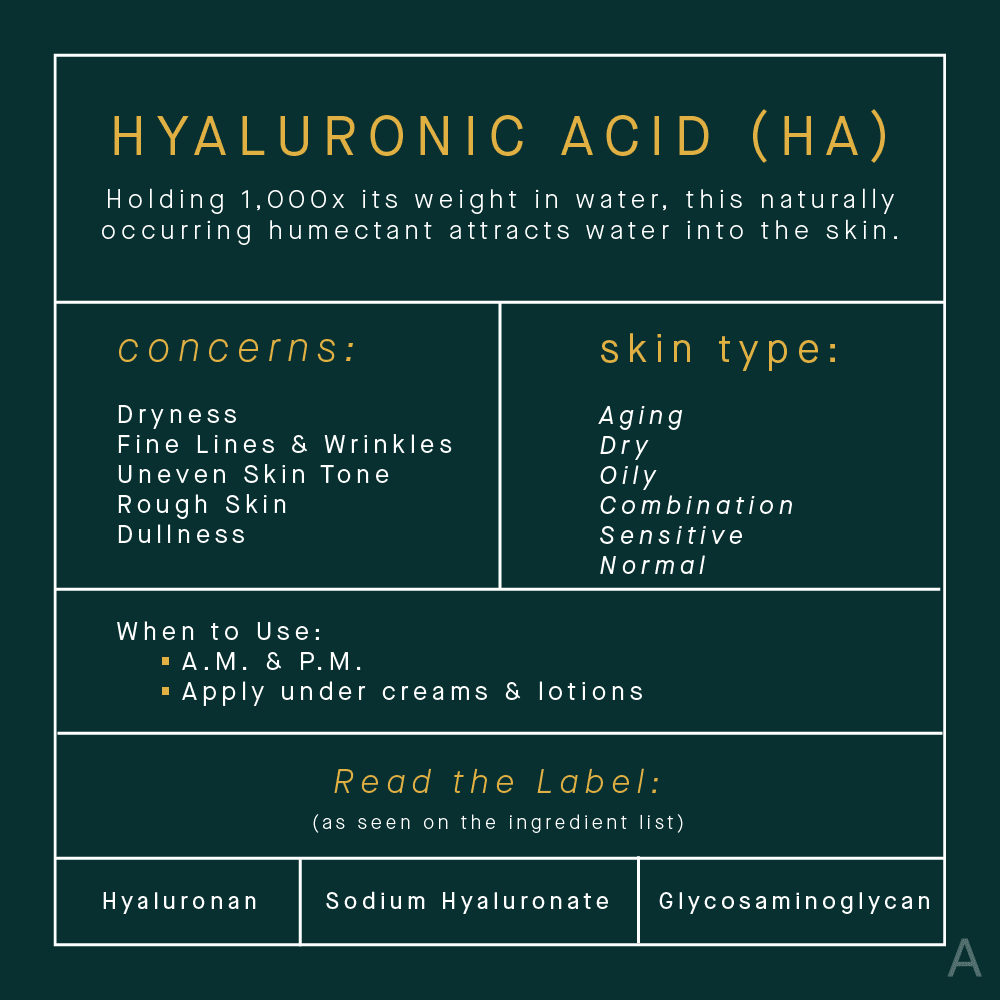
This buzzword seems to be waiting to smack you in the face at every turn, but there’s a reason: Hyaluronic acid is a highly effective humectant, which means it draws moisture to it. “‘[It’ll] basically plump the skin, so it appears more supple, softer, and smoother,” Dr. Shah says. In other words, it helps fill in lines with moisture, which can be incredibly effective for improving skin texture. Even so, Dr. Frank has this warning: because it pulls water from the nearest source, “the drawback is, if you apply it on your skin in a dry climate without humidity, it can actually pull water from your skin leaving skin more dehydrated.” As a result, he says HA is “best used in a humid or moist environment.”
Product Pick:
- L’Oréal Paris Age Perfect Cell Renewal Midnight Serum: Loaded with HA and antioxidants, this overnight treatment is lightweight, works for all skin types, and is formulated without parabens.
3. Azelaic Acid
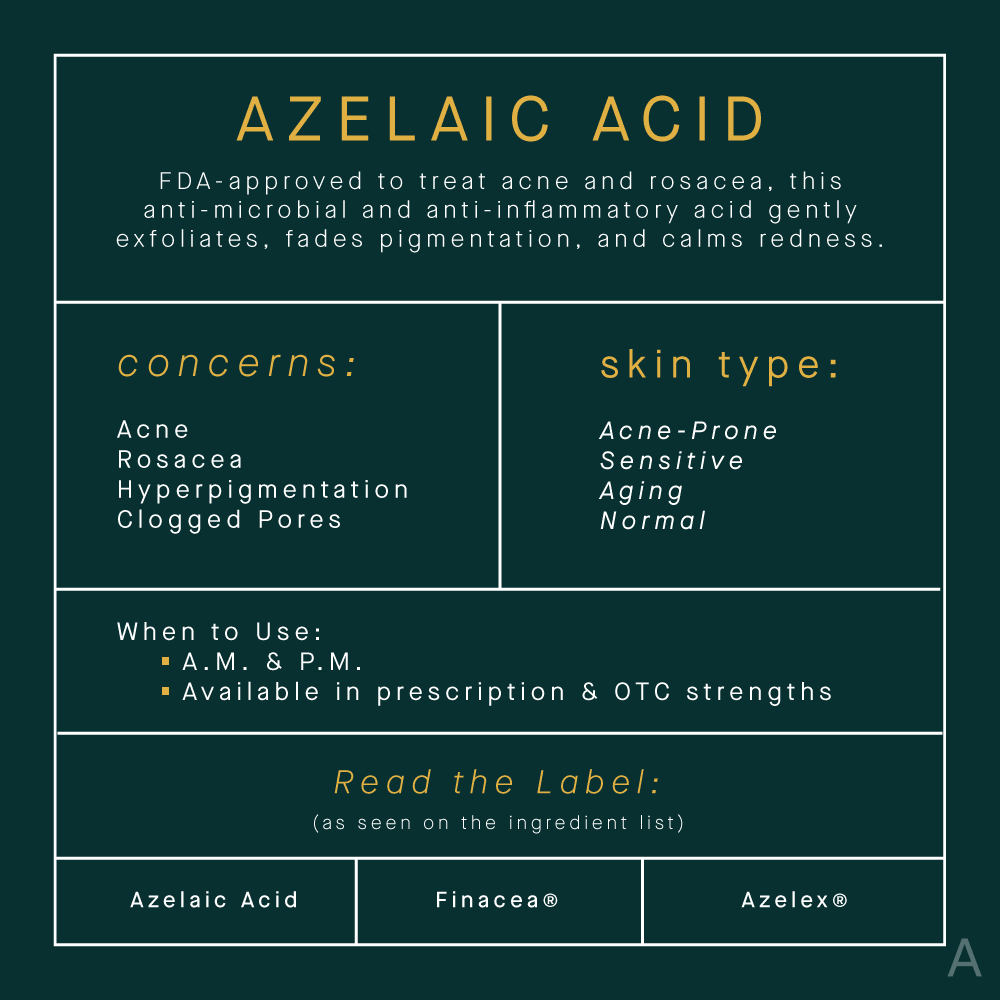
Derived from wheat, barley, and rye, azelaic acid acts as an anti-inflammatory and a gentle exfoliant. “In terms of anti-aging, I find it works best to help brighten and even skin tone,” Dr. Frank says. But that’s not all this sensitive skin-friendly acid does. “Because it’s an antioxidant, it will help prevent free radical damage, which can lead to fine lines and wrinkles,” he adds.
Product Pick:
- The Ordinary Azelaic Acid Suspension 10%: Work this lightweight, stripped-down gel-cream into your routine morning or night to help get in on the azelaic acid action without even breaking the $10 mark.
4. Prickly Pear Extract
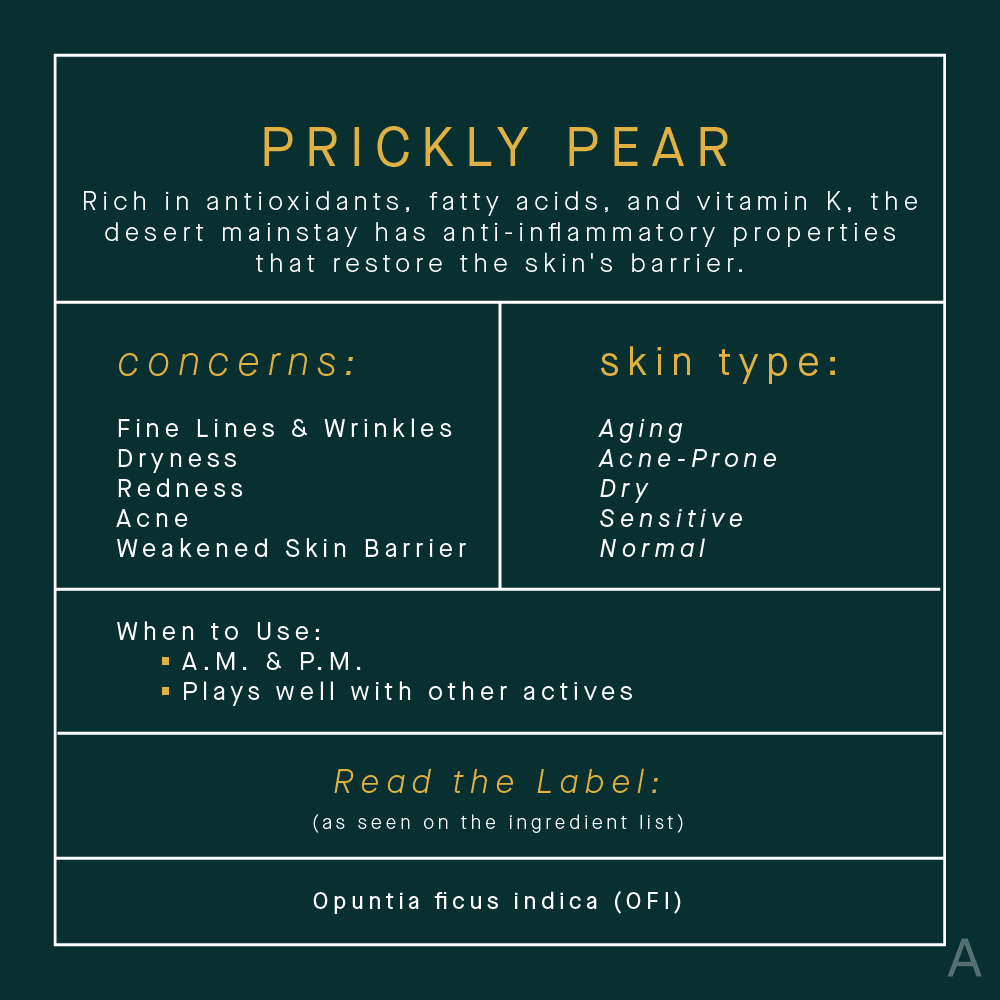
You know that red fruit that grows on top of certain cacti? Well, it’s a super fruit called prickly pear that isn’t just gentle — it also fights inflammation, restores the skin barrier, and calms redness (thanks to vitamin K). And the benefits just keep going. “It contains omega 6 and 9, which are essential fatty acids,” Dr. Frank notes. The result? It’s a “potent hydrator,” he says.
Product Pick:
- Carter+Jane The Everything Oil: This little bottle contains organic, sustainably sourced cold-pressed prickly pear seed oil to get the most out of the magic of this soothing, glow-boosting ingredient. Oh, and it’s hand-crafted in Morocco, which just makes it feel more special.
5. Niacinamide
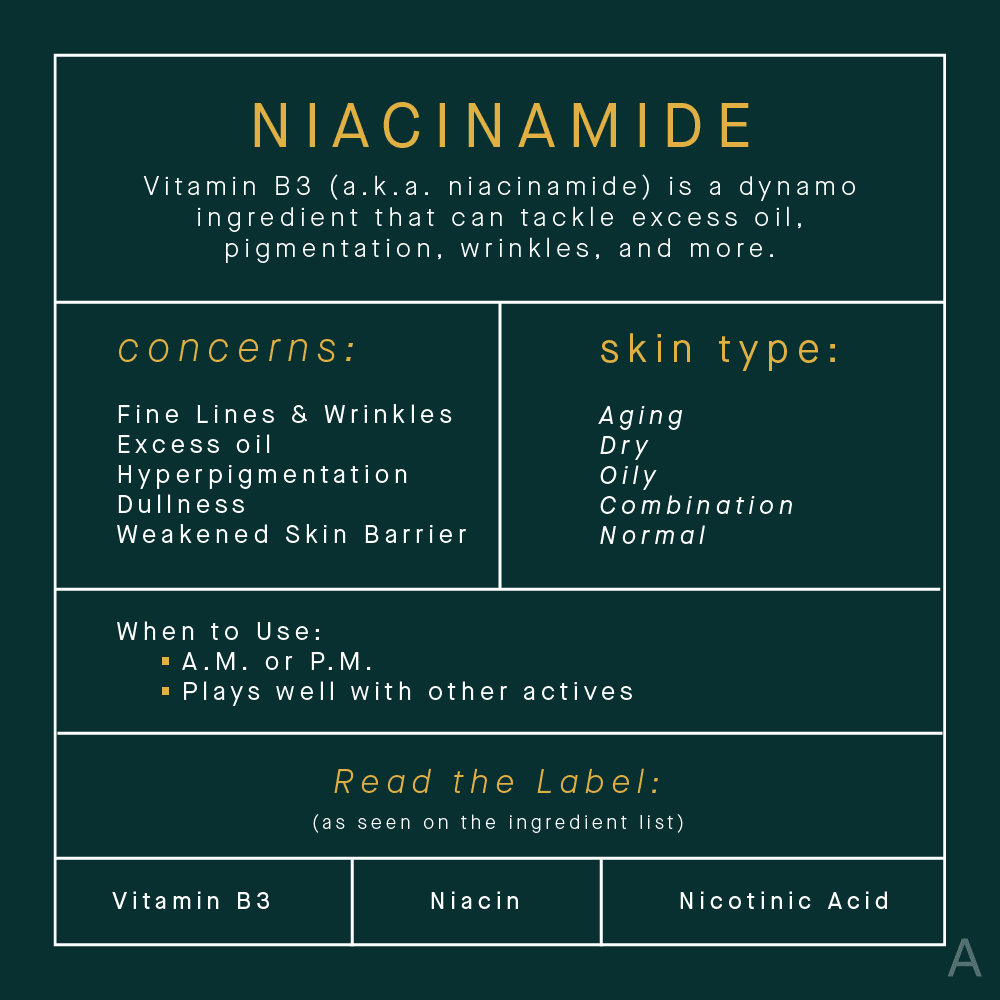
Also known as vitamin B3, niacinamide is “a great antioxidant that can neutralize free radical production and is actually quite calming on the skin,” Dr. Frank says. That last point makes it especially good to add to an anti-aging routine that features actives that may cause irritation. Dr. Shah explains it can potentially help counteract the irritating effects of other ingredients because it “helps strengthen and support the skin barrier, making the skin less susceptible to irritation and dryness.” Plus, a strong barrier means your skin will look healthier and more youthful overall.
Product Pick:
- Algenist Algae Niacinamide Moisture Veil: This instantly illuminating liquid moisturizer helps to address excess surface oil with algae concentrate (making pores look smoother), while treating with the powers of niacinamide.
All products featured are independently selected by our editors, however, AEDIT may receive a commission on items purchased through our links.
More Related Articles
Related Procedures

AI Plastic Surgeon™
powered by'Try on' aesthetic procedures and instantly visualize possible results with The AI Plastic Surgeon, our patented 3D aesthetic simulator.
